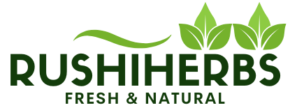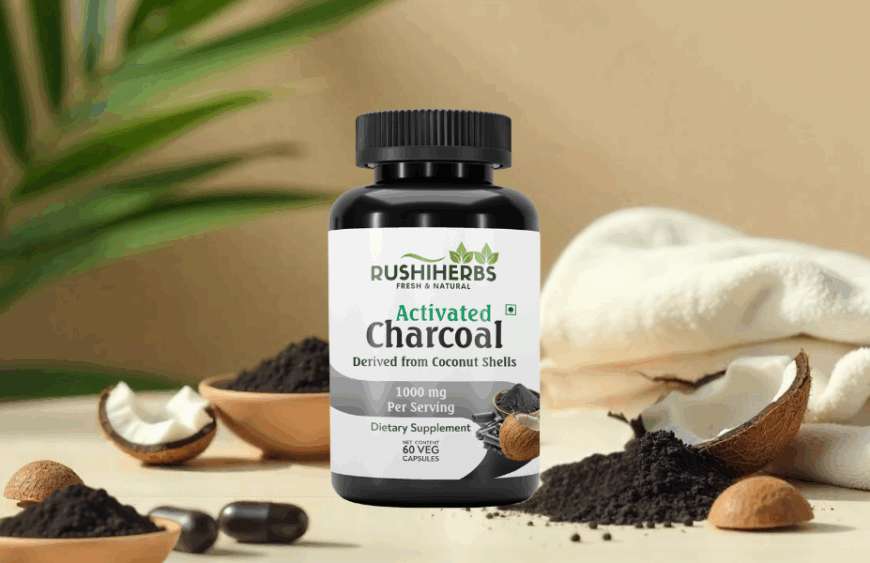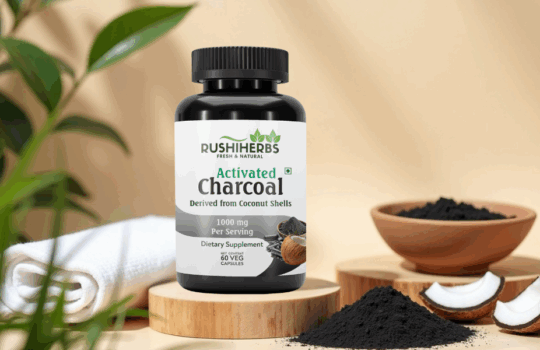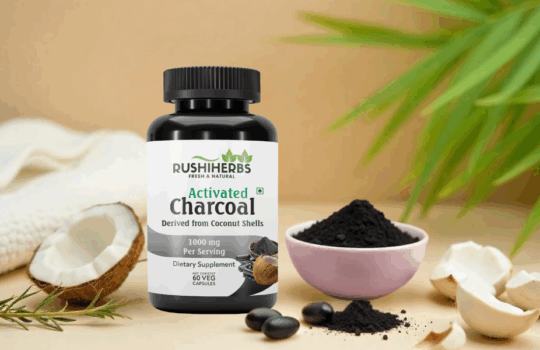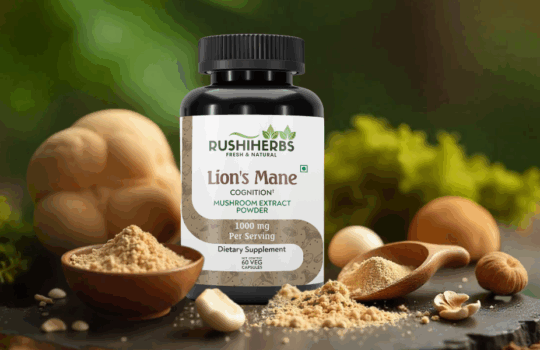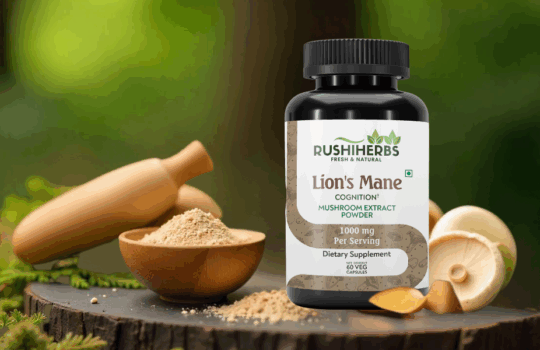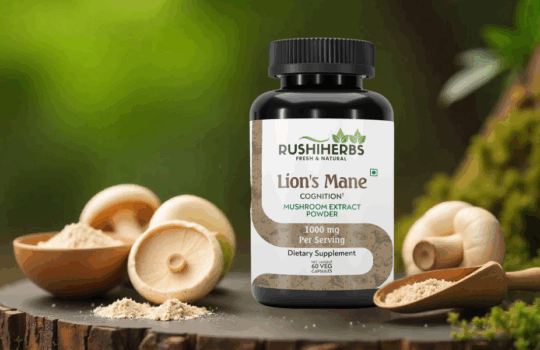In today’s world of oral care, where chemical-based solutions often come with side effects and artificial additives, more people are turning to natural alternatives. One such ancient remedy making a powerful comeback is Activated Charcoal—especially when derived from coconut shells. Among the most trusted products in this space is Rushi Herbs Activated Charcoal – 1000 mg, offering a premium-quality, vegan-friendly detox solution.
But can activated charcoal really help with oral hygiene, teeth whitening, and breath freshness? Backed by modern science and traditional wisdom, the answer is yes—when used responsibly.
In this comprehensive guide, we’ll explore how activated charcoal can transform your oral health naturally—without harsh chemicals.
Table of Contents
- Introduction: Why Oral Health Matters
- What Is Activated Charcoal?
- How Activated Charcoal Supports Oral Health
- Teeth Whitening: How It Works Naturally
- Breath Freshening: Activated Charcoal and Halitosis
- Removing Toxins and Plaque Safely
- Rushi Herbs Activated Charcoal: Why Coconut-Shell Charcoal Matters
- How to Use Activated Charcoal for Oral Care
- Safety Tips & Precautions
- Frequently Asked Questions (FAQs)
- Final Thoughts: Is It Right for Your Routine?
1. Introduction: Why Oral Health Matters
Oral health is a direct indicator of your overall well-being. It’s not just about having white teeth—it’s about preventing:
- Gum disease
- Bad breath (halitosis)
- Tooth decay
- Systemic infections
More research now links poor oral health with issues like heart disease, diabetes, and chronic inflammation. That’s why natural, effective oral care routines are more important than ever.
2. What Is Activated Charcoal?
Activated charcoal is a highly porous, fine black powder made from natural sources like coconut shells or bamboo. It’s “activated” through a high-temperature process that increases its surface area and absorbent properties.
This material can bind to toxins, chemicals, and gases, making it a detox superstar both inside and outside the body.
3. How Activated Charcoal Supports Oral Health
Activated charcoal is gaining popularity in oral care for these key reasons:
- Absorbs impurities: Binds to plaque, toxins, and bacteria in the mouth.
- Polishes teeth: Gently exfoliates surface stains without scratching enamel.
- Freshens breath: Neutralizes odor-causing compounds.
- Reduces acidity: Helps balance pH levels in the mouth.
These effects lead to cleaner, brighter teeth and improved oral hygiene, naturally.
4. Teeth Whitening: How It Works Naturally
One of the top benefits of activated charcoal is its natural teeth whitening ability. Unlike peroxide-based whiteners that may damage enamel or irritate gums, activated charcoal whitens gently by:
- Binding to tannins (found in coffee, wine, tobacco)
- Removing surface stains without bleaching
- Polishing teeth via micro-exfoliation
Why Coconut-Shell Charcoal is Superior
Rushi Herbs uses activated charcoal derived from coconut shells—a more eco-friendly and ultra-porous variety that enhances adsorption and delivers better whitening results.
5. Breath Freshening: Activated Charcoal and Halitosis
Bad breath, or halitosis, is often caused by sulfur compounds, bacteria, or food residue trapped between teeth and in the tongue.
Activated charcoal tackles this by:
- Trapping odor-causing bacteria
- Absorbing food particles and toxins
- Neutralizing sulfur compounds
Its odor-absorbing properties are so strong that it’s used in air filters and water purifiers—proving how effective it is in neutralizing unpleasant smells.
6. Removing Toxins and Plaque Safely
Activated charcoal also works to remove plaque buildup—a sticky film of bacteria that causes tooth decay and gum disease.
Unlike abrasive toothpaste or alcohol-based mouthwashes, activated charcoal:
- Binds to plaque without harsh chemicals
- Cleans the tongue and gums
- Supports pH balance, helping prevent bacteria growth
Bonus: Anti-inflammatory Support
Charcoal may reduce gum inflammation due to its toxin-binding and soothing effects, supporting healthy, pink gums.
7. Rushi Herbs Activated Charcoal: Why Coconut-Shell Charcoal Matters
Not all charcoal is created equal. Rushi Herbs Activated Charcoal Capsules – 1000 mg stands out because:
- It’s derived from premium coconut shells
- Offers high surface area adsorption
- Comes in vegan, easy-to-take capsules
- Contains no fillers, additives, or preservatives
Coconut-shell-based charcoal is more effective and cleaner than wood-based or synthetic charcoal.
It’s also gentler on the teeth and gums, making it ideal for daily oral care use.
8. How to Use Activated Charcoal for Oral Care
There are several ways to incorporate Rushi Herbs Activated Charcoal into your oral hygiene routine:
1. Capsule Method
Open a 1000 mg capsule and sprinkle the powder onto a wet toothbrush.
- Gently brush for 2 minutes.
- Rinse thoroughly with water.
- Do this 2–3 times per week.
2. Mouth Rinse
Mix the powder with a small amount of water and swish for 30–60 seconds. Spit and rinse.
3. Charcoal Toothpaste Add-On
Mix charcoal powder with a natural toothpaste to enhance its detox effects.
9. Safety Tips & Precautions
While activated charcoal is generally safe, here are a few tips to ensure responsible use:
- Don’t overuse: 2–3 times per week is sufficient.
- Avoid brushing aggressively: It’s mildly abrasive.
- Rinse thoroughly: Charcoal residue can temporarily darken gums and tongue.
- Consult your dentist: Especially if you have dental restorations or sensitivity.
Pro Tip: Always buy from reputable brands like Rushi Herbs to ensure purity and safety.
10. Final Thoughts: Is It Right for Your Routine?
If you’re looking for a natural, safe, and effective way to enhance your oral care routine, activated charcoal derived from coconut shells is a smart choice.
With Rushi Herbs Activated Charcoal 1000 mg, you get:
- A purity-guaranteed formula
- Sourced from eco-friendly coconut shells
- Effective detox support for teeth, breath, and gums
Backed by tradition and supported by science, this natural powerhouse deserves a place in your self-care routine.
Ready For Surprise ?
Frequently Asked Questions (FAQs)
1. Is activated charcoal safe for everyday use on teeth?
Activated charcoal is generally safe for intermittent use (2–3 times per week). Using it daily could lead to enamel wear due to its mildly abrasive texture. To maintain enamel integrity, it’s best to use it as a supplement to your regular toothpaste rather than a daily replacement.
2. How does activated charcoal whiten teeth?
Activated charcoal binds to surface stains caused by foods, drinks (like coffee, tea, and red wine), and tobacco. Its porous structure pulls in and lifts these impurities from the enamel, helping to visibly brighten teeth naturally without the use of harsh bleaching agents.
3. Will activated charcoal damage my enamel?
When used correctly, no. Activated charcoal is less abrasive than many whitening toothpastes, but it still requires gentle brushing and limited frequency (2–3 times weekly). Avoid brushing aggressively or using it more frequently than recommended to protect your enamel.
4. Can I use activated charcoal if I have dental fillings, crowns, or veneers?
Yes, but proceed with caution. Activated charcoal may not harm restorations, but it won’t whiten them either. Always consult your dentist before starting a charcoal-based regimen if you have dental work, especially porcelain or composite materials.
5. How quickly will I see results with activated charcoal for teeth whitening?
Results vary based on your current level of discoloration and how often you use the product. Most users notice brighter teeth within 1–2 weeks of consistent use. Deeper stains may take longer to fade.
6. Is Rushi Herbs Activated Charcoal good for bad breath?
Absolutely. Activated charcoal binds to odor-causing bacteria and toxins, neutralizing foul smells at the source. Regular use can help freshen breath naturally, especially when combined with tongue cleaning and proper oral hygiene.
7. Can children use activated charcoal for teeth whitening?
Children can use activated charcoal under adult supervision and in moderation. However, due to their developing enamel and higher sensitivity, it’s always best to consult a pediatric dentist before introducing charcoal to a child’s oral care routine.
8. Does activated charcoal taste bad?
Rushi Herbs Activated Charcoal is tasteless and odorless, especially since it comes in capsule form. If used directly on the toothbrush, the texture may feel slightly gritty, but it does not have an unpleasant taste.
9. Is activated charcoal better than chemical whiteners?
While activated charcoal offers a gentler, natural alternative, it may not be as fast-acting as chemical whiteners like hydrogen peroxide. However, it has fewer side effects, such as sensitivity or gum irritation, making it ideal for those seeking a non-toxic, holistic option.
10. Can I swallow activated charcoal capsules for oral health benefits?
Swallowing the capsules supports internal detoxification, not direct oral whitening. For oral care, it’s best to open the capsule and apply the powder topically by brushing or rinsing. However, Rushi Herbs Activated Charcoal capsules are safe to ingest and offer additional digestive and toxin-binding benefits.
